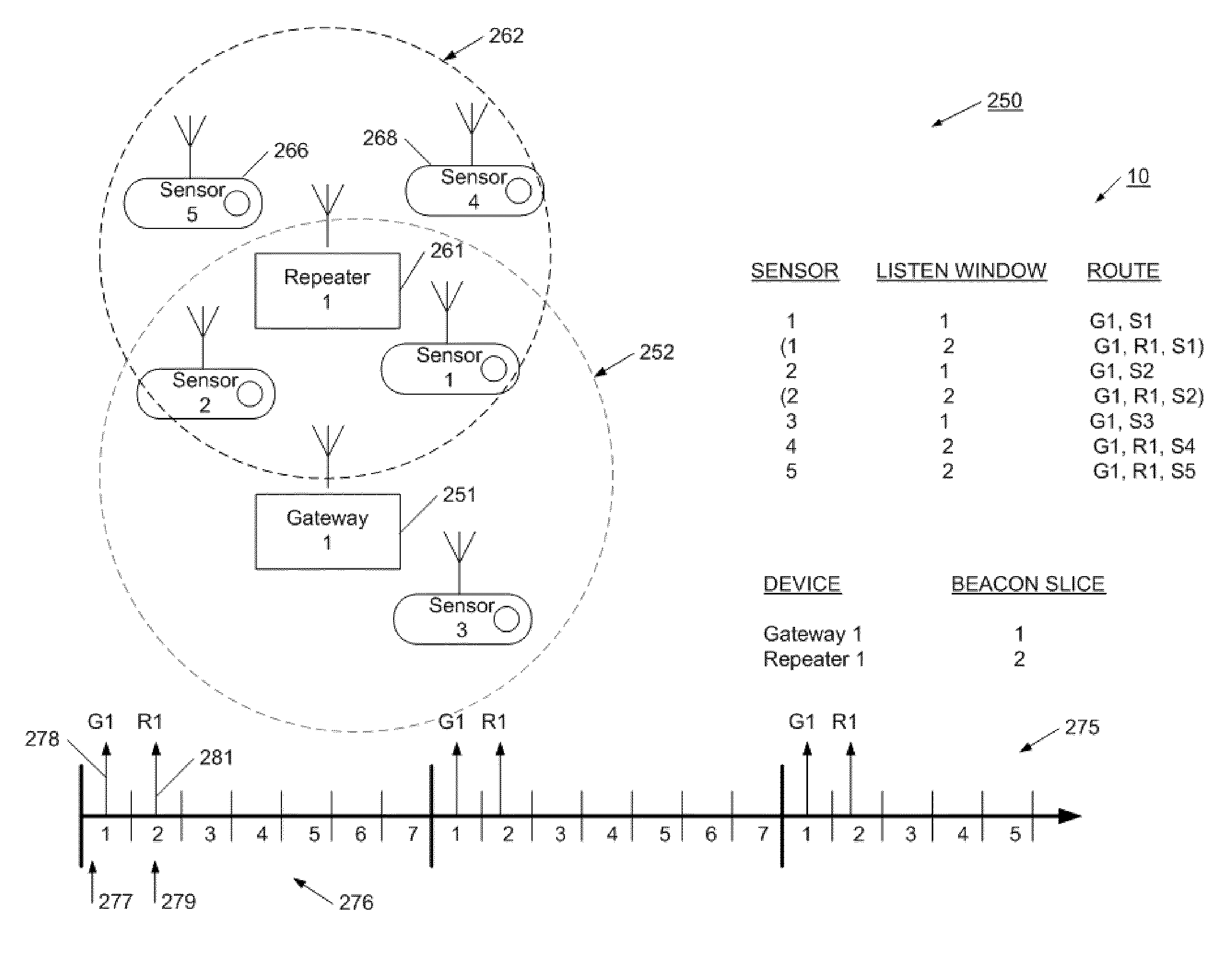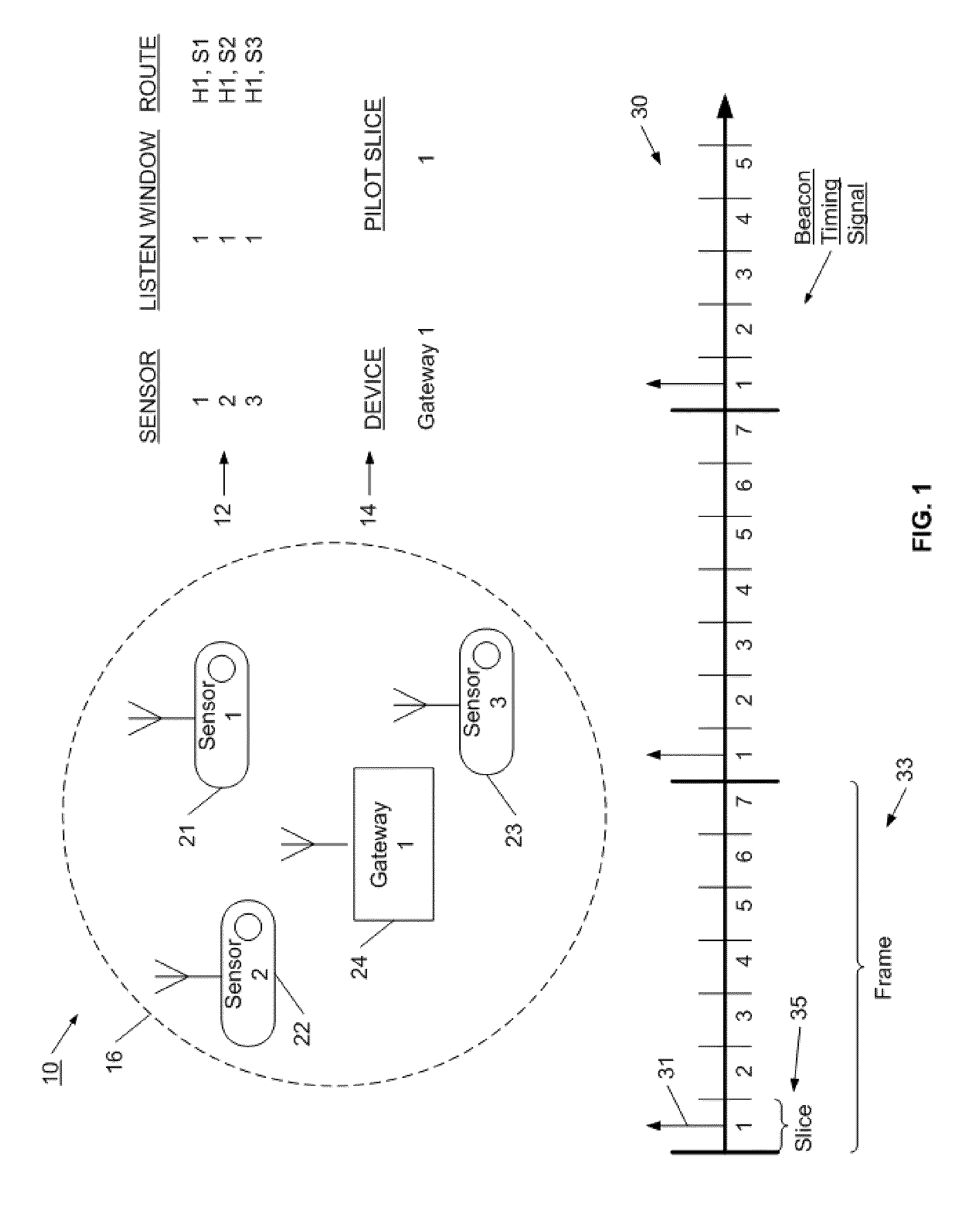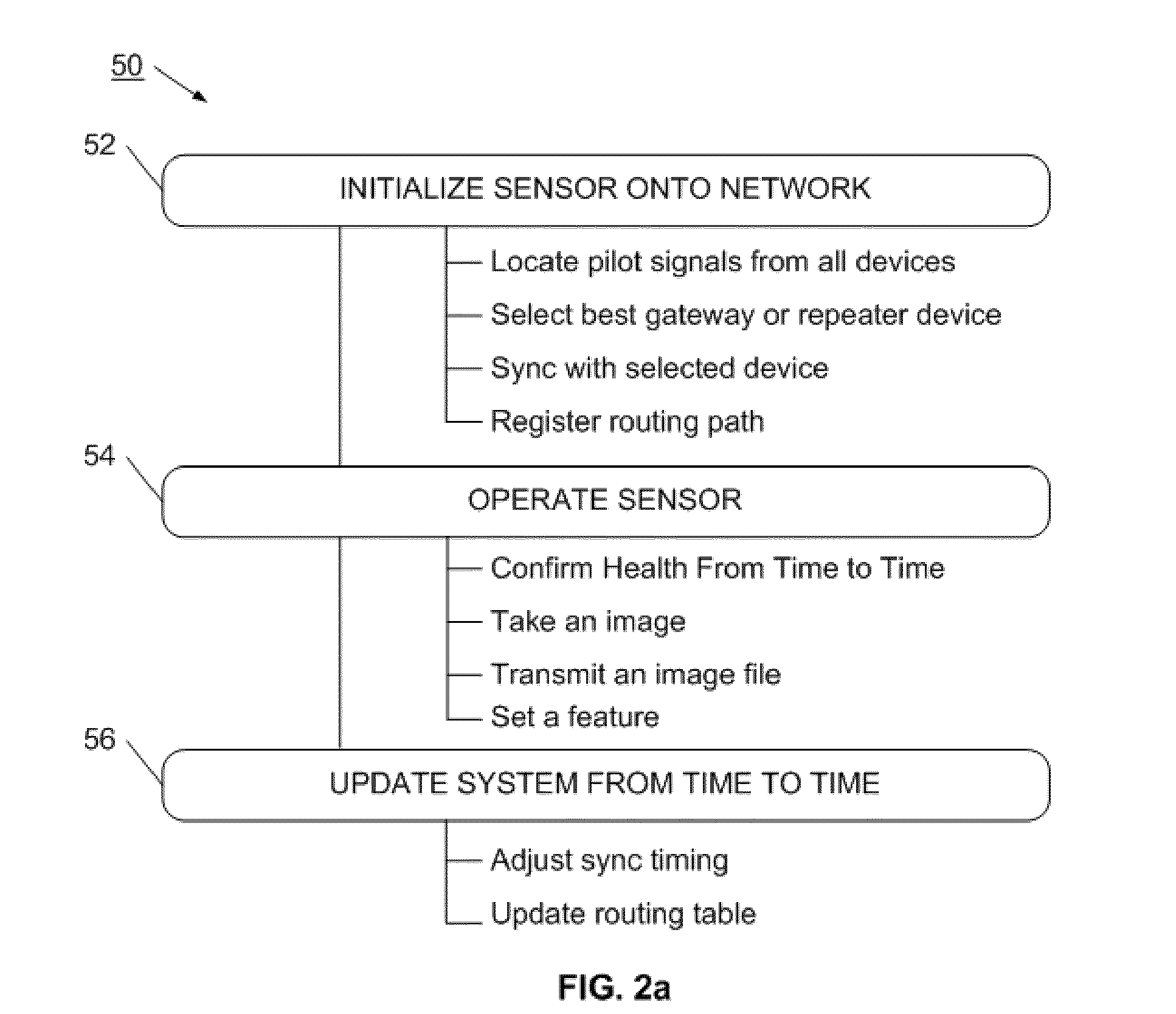Communication protocol for low-power network applications and a network of sensors using the same
a technology of low-power network applications and communication protocols, applied in the direction of frequency-division multiplex, wireless architecture, instruments, etc., can solve the problems of inability to physically get, limited placement options of digital cameras, and undesirable long-term monitoring or security applications
- Summary
- Abstract
- Description
- Claims
- Application Information
AI Technical Summary
Benefits of technology
Problems solved by technology
Method used
Image
Examples
Embodiment Construction
[0030]Referring now to FIG. 1, a network of sensors is illustrated. Network 10 is a wireless network enabling a set of independent sensors to communicate sensor information to a gateway, which may then make the information available for a variety of uses. For example, the gateway may be connected to other central server operations for collecting, sharing, and analyzing the information. In one example, the sensor systems are image cameras for taking image or video information. These sensors may be distributed around a local area for security, surveillance or monitoring purposes.
[0031]In network 10, a gateway 24 acts as the master or controller for the network system. Camera sensors 21, 22, and 23 are positioned within the communication range 16 of gateway 24. Typically, these sensors will be within a few hundred feet or less of gateway 24. It will be appreciated, however, that the distance between sensors, and the distance between each sensor and the gateway may be adjusted according...
PUM
 Login to View More
Login to View More Abstract
Description
Claims
Application Information
 Login to View More
Login to View More - R&D
- Intellectual Property
- Life Sciences
- Materials
- Tech Scout
- Unparalleled Data Quality
- Higher Quality Content
- 60% Fewer Hallucinations
Browse by: Latest US Patents, China's latest patents, Technical Efficacy Thesaurus, Application Domain, Technology Topic, Popular Technical Reports.
© 2025 PatSnap. All rights reserved.Legal|Privacy policy|Modern Slavery Act Transparency Statement|Sitemap|About US| Contact US: help@patsnap.com



